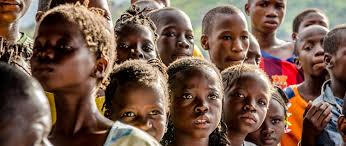HEALTH
Continued HIV/AIDS Discrimination Undermines Nigeria’s Progress, NACA, UNAIDS Warn

The National Agency for the Control of AIDS (NACA) and the Joint United Nations Programme on HIV/AIDS (UNAIDS) have strongly condemned persistent HIV/AIDS-related stigma and discrimination in Nigeria, emphasising its negative impact on efforts to combat the epidemic.
In a joint press conference on Tuesday to commemorate Zero Discrimination Day and Nigeria’s membership in the Global Partnership for Action to Eliminate All Forms of HIV-Related Stigma and Discrimination, the agencies emphasised that discrimination, not the virus, is a major killer.
With an estimated 1.9 million HIV/AIDS patients in Nigeria, the agencies emphasised that stigma undermines interventions for prevention, treatment, and care.
The Nigeria People Living with HIV Stigma Index Survey 2.0 Report revealed alarming statistics: 2% of respondents faced stigma and discrimination, while 10.9% reported human rights violations.
Significantly, only one out of every four people who experienced abuse sought redress, with many citing a lack of knowledge about how to seek help, a belief that justice is impossible to obtain, or a fear of disclosing their HIV status.
The agencies stated that HIV-related stigma and discrimination are key human rights barriers to ending the AIDS epidemic.
They cited cases of children being expelled from school and workers being denied employment because of their HIV status, demonstrating the pervasiveness of the problem.
Discrimination continues to occur at all levels of society, including homes, communities, workplaces, healthcare facilities, and even policymakers.
NACA and UNAIDS will collaborate on five priority areas: healthcare, education, workplaces, justice systems, and community settings.
While Nigeria has anti-discrimination laws in place, enforcement is weak, and deeply ingrained cultural biases remain.
To effectively address the issue, the agencies advocated for stricter enforcement of existing laws, as well as widespread public education campaigns and increased political will.
They outlined a three-pronged strategy: translating global commitments into national action, strengthening stakeholder partnerships, and collecting and disseminating data to inform policy and track progress.
The agencies acknowledged the challenges ahead, but emphasised the importance of addressing the deeply ingrained prejudice that fuels discrimination, ultimately jeopardising Nigeria’s goal of eliminating AIDS as a public health threat by 2030.
They concluded that fighting HIV/AIDS requires a multifaceted approach that includes legal reforms, increased political will, and a significant shift in societal attitudes towards people living with the disease.
-
CRIME3 years ago
PSC Dismisses DCP Abba Kyari, To Be Prosecuted Over Alleged $1.1m Fraud
-
FEATURED3 years ago
2022 Will Brighten Possibility Of Osinbajo Presidency, Says TPP
-
FEATURED2 years ago
Buhari’s Ministers, CEOs Should Be Held Accountable Along With Emefiele, Says Timi Frank
-
BUSINESS & ECONOMY2 years ago
Oyedemi Reigns As 2023’s Real Estate Humanitarian Of The Year
-
SPORTS1 year ago
BREAKING: Jürgen Klopp Quits Liverpool As Manager At End Of Season
-
SPORTS2 years ago
Could Liverpool Afford Kylian Mbappe For €200 million? Wages, Transfer Fee
-
ENTERTAINMENT2 years ago
Veteran Nigerian Musician, Basil Akalonu Dies At 72
-
FEATURED2 years ago
Tribunal Judgement: Peter Obi Warns Of Vanishing Electoral Jurisprudence, Heads To Supreme Court
-
BUSINESS & ECONOMY2 years ago
Oyedemi Bags ‘Next Bulls Award’ As BusinessDay Celebrates Top 25 CEOs/ Business Leaders
-
FEATURED3 years ago
2023 Presidency: South East PDP Aspirants Unite, Demand Party Ticket For Zone



































